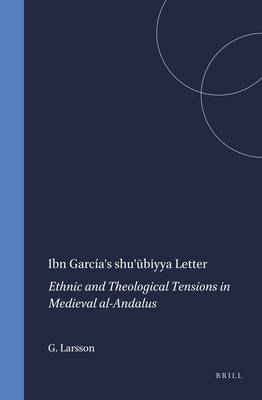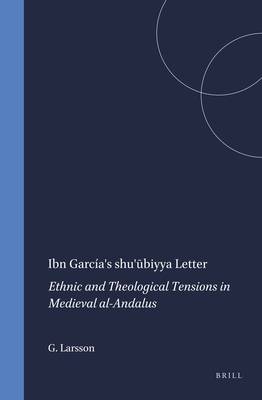
- Afhalen na 1 uur in een winkel met voorraad
- Gratis thuislevering in België vanaf € 30
- Ruim aanbod met 7 miljoen producten
- Afhalen na 1 uur in een winkel met voorraad
- Gratis thuislevering in België vanaf € 30
- Ruim aanbod met 7 miljoen producten
Zoeken
€ 264,45
+ 528 punten
Omschrijving
This volume deals with the medieval shu'ūbiyyah movement (in which non-Arab Muslims sought equality of power and status with Arabs) in al-Andalus, Muslim Spain. By analysing a letter composed by Ibn García during the 11th century, the tensions between Arab and non-Arab Muslims are discussed in detail. Symbols, stories and legends used in the shu'ūbiyyah corpus of writings are analysed in the light of the political and theological development in al-Andalus and the Muslim world. Authority, legitimacy and power are central both to the discussion of Ibn García's letter and the history of the shu'ūbiyyah movement.
The first part gives the historical background to the history of al-Andalus. Ethnic conflicts and tensions related to authority and power are of special interest. The second part, gives a detailed analysis of Ibn García's shu'ūbiyyah letter in relation to the historical and contemporary situation in al-Andalus.
The first part gives the historical background to the history of al-Andalus. Ethnic conflicts and tensions related to authority and power are of special interest. The second part, gives a detailed analysis of Ibn García's shu'ūbiyyah letter in relation to the historical and contemporary situation in al-Andalus.
Specificaties
Betrokkenen
- Auteur(s):
- Uitgeverij:
Inhoud
- Aantal bladzijden:
- 256
- Taal:
- Engels
- Reeks:
- Reeksnummer:
- nr. 16
Eigenschappen
- Productcode (EAN):
- 9789004127401
- Verschijningsdatum:
- 25/11/2002
- Uitvoering:
- Hardcover
- Formaat:
- Genaaid
- Afmetingen:
- 168 mm x 247 mm
- Gewicht:
- 589 g

Alleen bij Standaard Boekhandel
+ 528 punten op je klantenkaart van Standaard Boekhandel
Beoordelingen
We publiceren alleen reviews die voldoen aan de voorwaarden voor reviews. Bekijk onze voorwaarden voor reviews.








